Whether you organize events or run a membership site, you need user-friendly login and user registration forms on your website. Colleges and schools also use registration forms to enroll students in courses.
Custom user login and registration forms on your site encourage site visitors to register with you. If your site’s login and user registration forms are easy to use, there’s a higher chance more people will register.
However, WordPress doesn’t let you fully customize login and registration forms. You need to use a WordPress plugin such as ProfilePress to get the exact look and feel you want.
ProfilePress offers an all-in-one solution for creating and managing user registration forms. In this article, we’ll look at how you can create custom WordPress login and user registration forms to maximize user registrations on your website.
Why you should use custom login and registration forms
Using custom login and registration forms can help you enhance your site’s user experience, making it much easier for new members to sign up or register.
Let’s go over some other advantages of using custom login and registration forms on your site:
- Personalize your website. You can customize and change how your website looks on the front end using custom login and user registration forms. This gives you complete control over the look and feel of your website and helps make it look more unique. As a result, it can help your brand stand out from the competition.
- Offer intuitive user registrations. As a website owner, you want to set up easy-to-use and intuitive user registrations on your site. This way, more people will be able to complete their registration.
- Make your site more user-friendly. By using custom login and registration forms, you can also make your website more user-friendly. It enhances on-site navigation and lets users quickly log in to their accounts.
- Regulate and manage users on your site. Using custom login and registration forms, you can efficiently regulate and manage registered users on your site. This means you can offer role-based restrictions for premium content on your site. For instance, you might consider offering three different levels of membership: Gold membership, Silver membership, and a Bronze membership plan. You can charge different rates for each membership level and restrict content based on the user role.
As mentioned earlier, WordPress doesn’t offer much flexibility when setting up login and user registration forms—the solution is ProfilePress.
The best login and user registration forms plugin
ProfilePress is a professional WordPress user profile and membership plugin that lets you create an excellent WordPress site and gives you complete control over who can access your valuable content.
ProfilePress offers an easy-to-use, simple interface to set up user registration and login forms quickly. You can start with prebuilt, attractive templates for creating a login, registration, password reset, and edit profile forms on your WordPress site.
Users can create accounts, log in to your site, manage their accounts, and reset their passwords – all from the front-end.
ProfilePress lets you personalize the user registration experience on your site according to your specific requirements. In addition to this, you can also create member directories. This lets registrants and members search and find other members. It’s perfect for event websites and school and college websites. Users also have the option to view and display avatars or choose to upload a profile picture to their user account.
With ProfilePress, users can edit their profile information and manage their accounts from the front-end. They can access the My Account page after they log in to your website.
How to create custom WordPress login and user registration forms
Here, we’ll show you how to create custom WordPress login and user registration forms on your website using ProfilePress.
Step #1: Install and activate ProfilePress
Start by activating and installing the ProfilePress plugin on your WordPress site. The ProfilePress plugin lets you create custom WordPress login and user registration forms on your site using pre-designed intuitive templates.
After you download and install the ProfilePress plugin, you need to activate the plugin using the license key provided at the time of purchase.
Step #2: Create user registration and login forms
Now with the ProfilePress plugin installed and ready to go, we can start creating user registration and login forms.
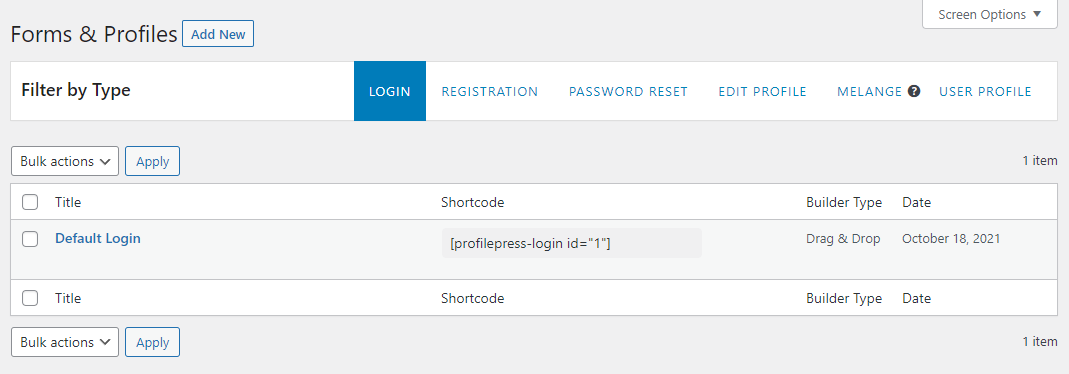
Navigate to ProfilePress → Forms & Profiles from the WordPress admin panel and click on the Login tab. Click on the Add New button and select the Drag & Drop Builder for this. Enter a name and choose one of the pre-designed templates or build one on your own. We’ve selected the Perfecto Pro template to start with.
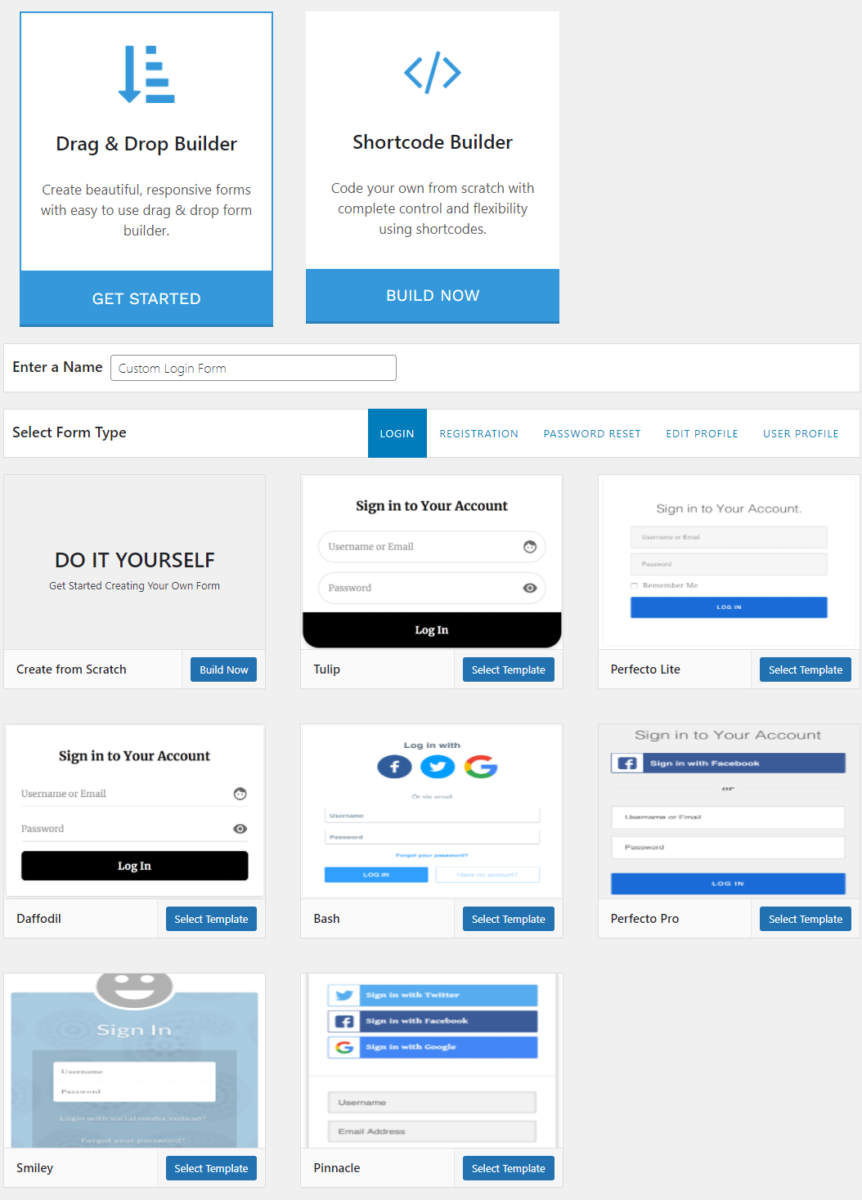
You can now customize how your login form will look on the frontend of your website. You can drag and drop to arrange the text field order and add more fields, such as the reCAPTCHA and the Custom HTML field, to your login form. The reCAPTCHA field, for example, is a great way to prevent spam submissions.
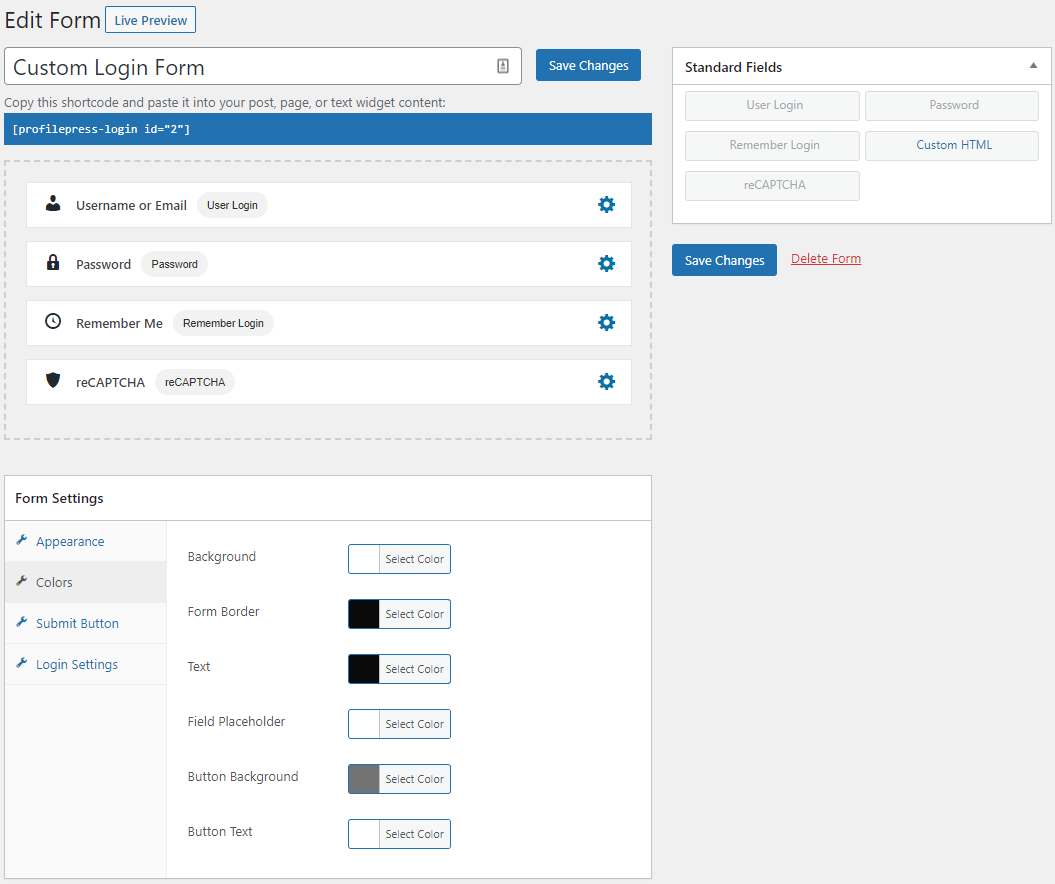
Using Form Settings, you can customize the appearance of your login form buttons and the text and change the colors for your login form. Once you’re done, click the Save Changes button.
Now, go back to ProfilePress → Forms & Profiles. Click on the Registration tab and create a new registration form.
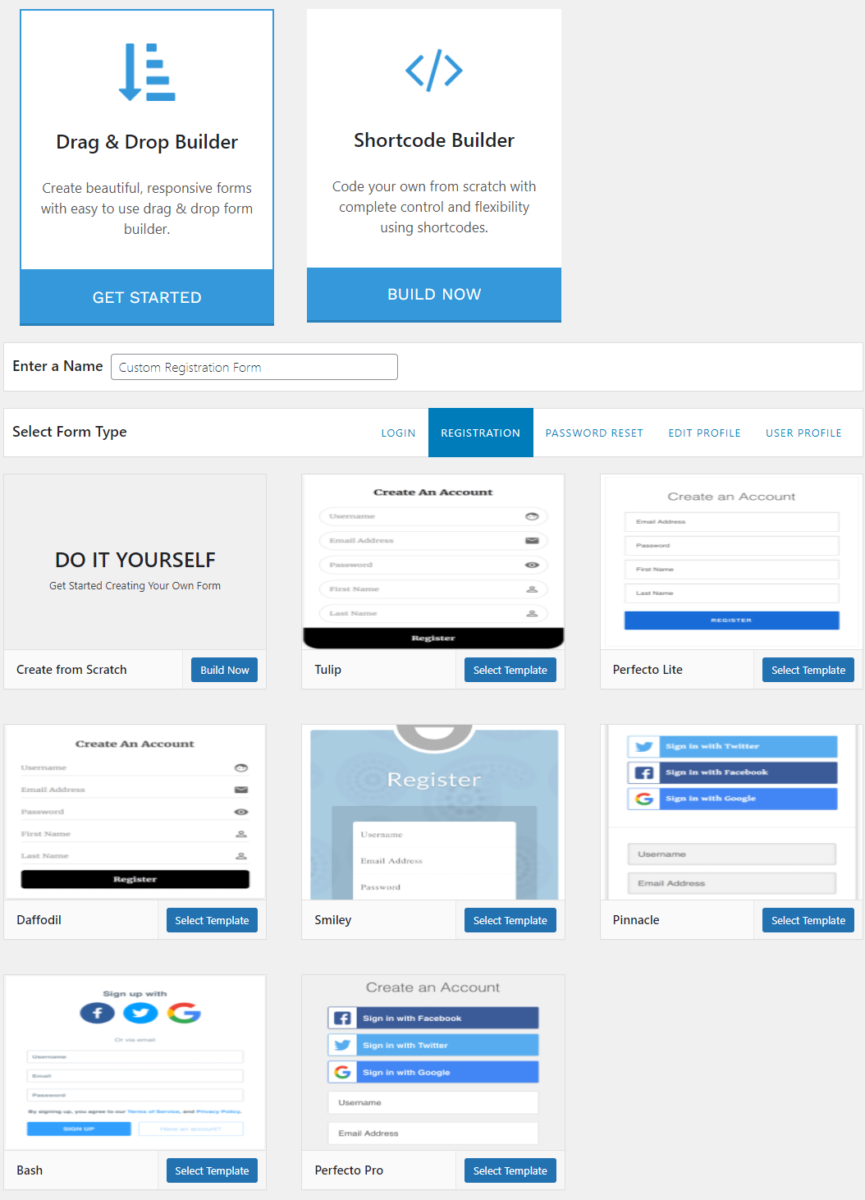
Name your registration form and select the template you want to start with. For the registration form, we have used the Daffodil template.
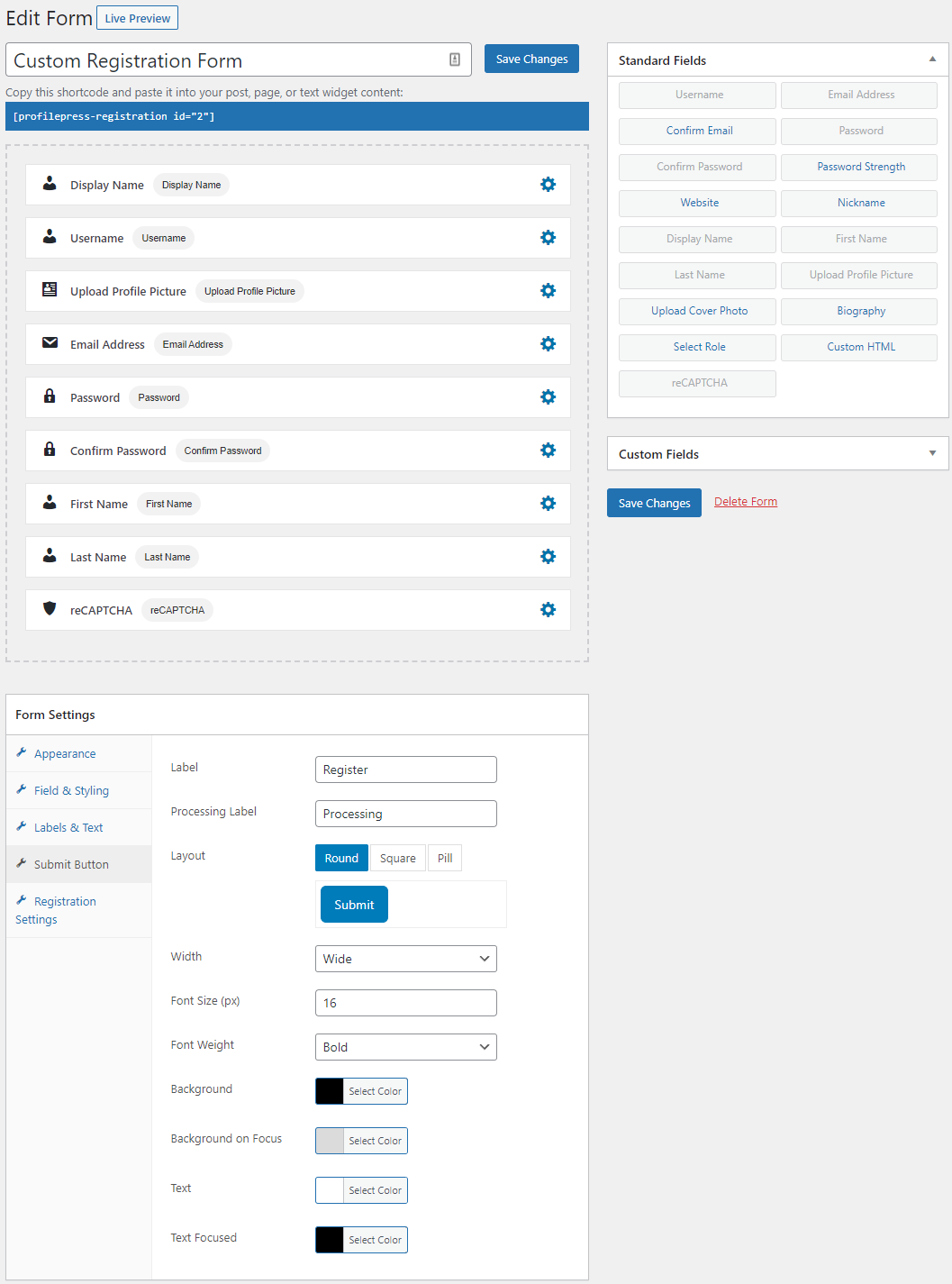
You can add or remove and rearrange the fields and add custom fields to your user registration form. Once you add the fields, you can customize your Form Settings to ensure it’s exactly how you want it to be.
Click on the Save Changes button to continue.
Step #3: Preview
The ProfilePress plugin will add and display custom login and user registration forms on your WordPress site. Here’s what users will see when they register on your website:
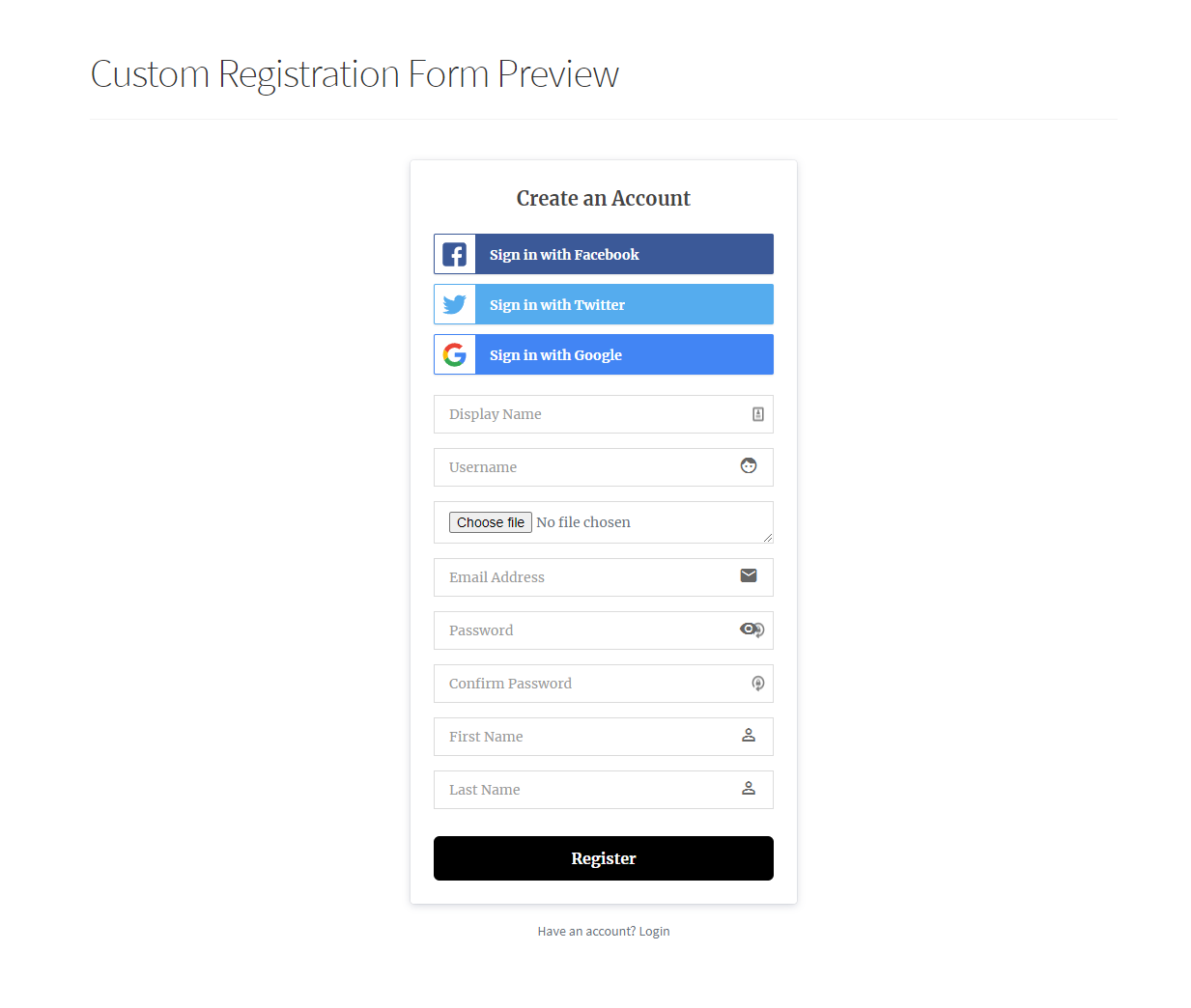
And here’s what the login form looks like:
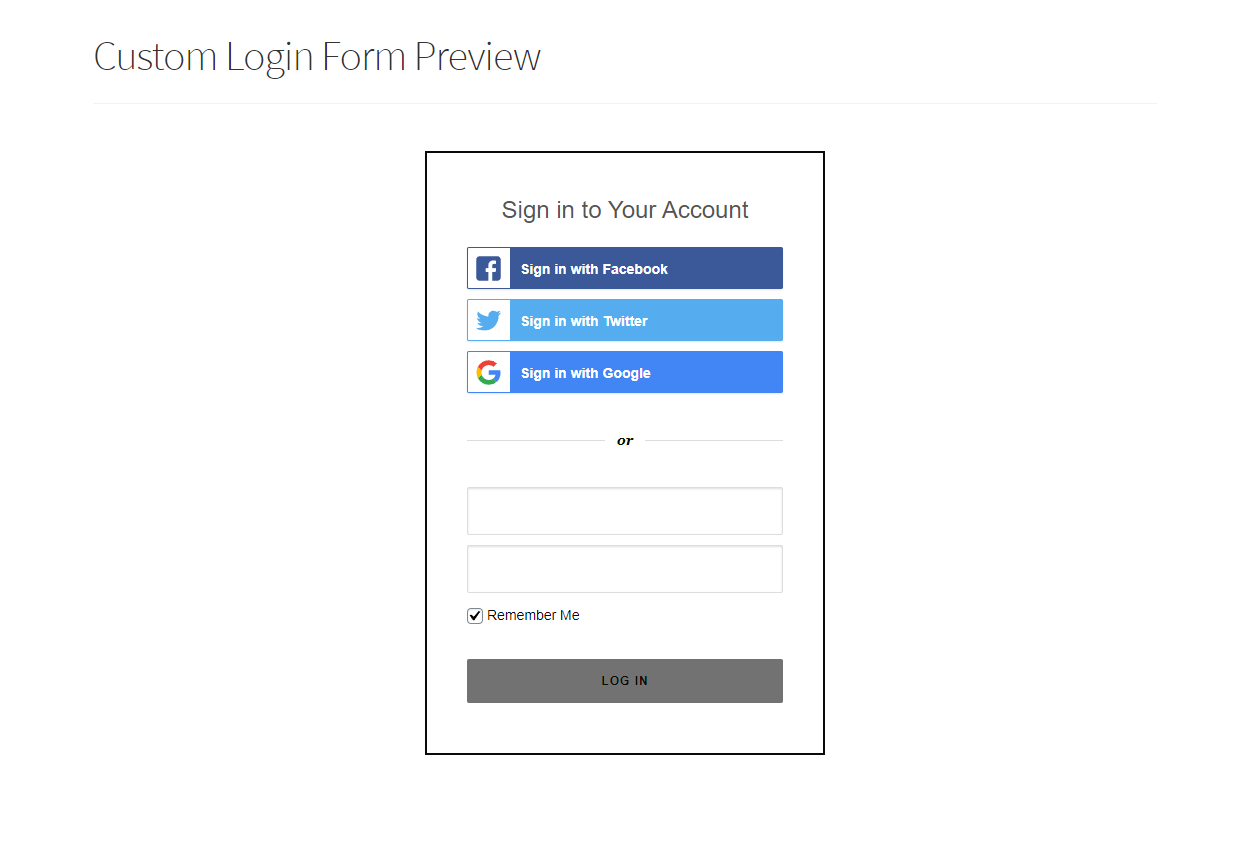
The core ProfilePress plugin lets you set up custom WordPress login and user registration forms. In addition to this, you can also set up an avatar display and upload functionality.
To further enhance the user experience, you can use Addons for ProfilePress. Here’s a quick overview of some of the different options:
- Custom Fields. This add-on lets you add even more fields to your custom user registration forms to collect additional information from registrants. If you organize events, you can use this to ask attendees if they have any dietary restrictions or if they’d like to opt-in for accommodation and transport.
- Email Confirmation. You can use this add-on to ensure new registrants confirm their email addresses before they can log in to your website. This is an effective way of preventing spam registrations.
- Social Login. Instead of requiring registrants to create a new user account, you can let them log in with existing social network accounts. ProfilePress supports login via Facebook, Twitter, Google, LinkedIn, GitHub, and VK.
- Google reCAPTCHA. The reCAPTCHA addon is the easiest way to protect your login and user registration forms against spam and bot attacks.
Be sure to check out the complete list of premium addons and how to use them to enhance your custom login and user registration forms.
Conclusion
Creating a custom WordPress login and user registration is a great way to encourage more people to register with you. This way, you can enhance the user experience on your website and increase enrollments.
Using ProfilePress to create login and user registration forms can help speed up the process tremendously.
You can quickly create login and registration forms using the drag-and-drop builder and prebuilt templates. It also offers extensive functionality for customizing how your login and registration forms look on the front-end of your website. It also lets you create member directories registered users can view on the front-end.
Ready to start creating custom WordPress login and user registration forms? Get ProfilePress today!